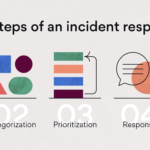When it comes to managing finances, especially during tax season, hiring an accountant can be one of the best decisions you make. An accountant for tax purposes helps individuals and businesses navigate the complexities of tax laws and regulations. They ensure that you comply with the law while maximizing your potential deductions and credits. This can lead to significant savings and stress reduction during what can be a hectic time of year.
In addition to preparing your tax returns, accountants can offer valuable advice on tax planning. This means they help you understand how to structure your finances throughout the year to minimize your tax liability. With tax laws constantly changing, having a knowledgeable accountant on your side can make a huge difference. In the following sections, we’ll explore the specific roles of tax accountants, the types available, and tips for choosing the right one for your needs.
What Does an Accountant for Tax Do?
An accountant for tax plays a crucial role in managing financial obligations related to taxes. Their primary responsibility is to prepare tax returns for individuals and businesses, ensuring that all income, deductions, and credits are accurately reported. This requires a deep understanding of current tax laws and regulations, which can vary greatly depending on location and financial situation.
Beyond filing tax returns, tax accountants also provide essential services like tax planning. This involves strategizing throughout the year to minimize tax liabilities, potentially saving you significant amounts of money. They analyze your financial situation, recommend deductions, and help you understand the tax implications of various financial decisions.
Moreover, accountants can represent you during audits or disputes with tax authorities, providing peace of mind that you have a professional advocate. Overall, their expertise helps clients navigate the often confusing landscape of taxes, ensuring compliance while optimizing financial outcomes.
Why You Need an Accountant for Taxes
Hiring an accountant for tax purposes can be beneficial for many reasons. First and foremost, it saves you time. Preparing taxes can be complicated and time-consuming, especially if you have multiple income sources, investments, or deductions. An accountant streamlines this process, allowing you to focus on other important aspects of your life or business.
In addition to saving time, a qualified accountant can also save you money. They possess the expertise to identify potential deductions and credits that you might overlook. This knowledge can lead to significant tax savings. Furthermore, having a professional handle your taxes reduces the risk of errors that could result in penalties or additional taxes owed.
Accountants also provide peace of mind. Tax laws are continually changing, and understanding these changes can be overwhelming. A tax professional stays updated on the latest regulations, ensuring that your returns are compliant. This can be especially crucial if you face an audit, as an accountant can represent you and help navigate the situation effectively.
Types of Accountants for Tax Services
When looking for an accountant for your tax needs, it’s important to understand the different types available. The most common types include Certified Public Accountants (CPAs), Enrolled Agents (EAs), and tax attorneys.
Certified Public Accountants (CPAs) are licensed professionals who have passed rigorous exams and met specific educational requirements. They can provide a wide range of services, including tax preparation, auditing, and consulting. Their expertise often makes them a go-to choice for both individuals and businesses.
Enrolled Agents (EAs) are tax professionals who have passed a comprehensive IRS test. They specialize in tax-related matters and have the authority to represent clients before the IRS. EAs often have in-depth knowledge of tax laws and can assist with complex tax situations.
Tax Attorneys focus on the legal aspects of taxation. They can provide advice on tax planning and represent clients in disputes with tax authorities. If you have a complex tax situation or face legal challenges, a tax attorney may be your best option.
Understanding these distinctions can help you choose the right professional based on your specific tax needs.
How to Choose the Right Accountant for Your Tax Needs
Choosing the right Accountant For Tax needs can feel overwhelming, but it doesn’t have to be. Start by identifying your specific requirements. Consider whether you need help with personal taxes, business taxes, or both. This will help narrow down your options.
Next, look for accountants with relevant experience and qualifications. Check their credentials, such as CPA or EA status, and review their professional history. It’s also beneficial to seek recommendations from friends, family, or colleagues who have had positive experiences.
During initial consultations, ask key questions to assess their expertise. Inquire about their familiarity with your specific financial situation or industry. Understanding their approach to tax planning and their fees is also crucial.
Lastly, consider the importance of communication. You want an accountant who is responsive and able to explain complex tax matters in a way that you can understand. A good working relationship can make the tax process smoother and more efficient.
Common Misconceptions About Tax Accountants
There are several misconceptions about tax accountants that can lead individuals to avoid seeking professional help. One common myth is that hiring an accountant is too expensive. While there are costs associated with their services, many accountants save clients more money than they charge by identifying deductions and credits that may go unnoticed.
Another misconception is that tax accountants are only needed for complex tax situations. In reality, even straightforward tax filings can benefit from a professional’s oversight. Mistakes can be costly, and having an expert review your return can prevent potential issues.
Many also believe that accountants will take care of everything without requiring client input. While accountants can manage many aspects of tax preparation, it’s essential for clients to provide accurate information and stay involved in the process.
Understanding these misconceptions can help you appreciate the value that a tax accountant can bring, regardless of the complexity of your tax situation.
Tips for Working with Your Accountant
Once you’ve selected an accountant, effective collaboration can enhance the experience and outcomes. Start by organizing your financial documents ahead of meetings. This includes income statements, previous tax returns, and any relevant receipts. Having everything in order can streamline the process and help your accountant provide the best advice.
Regular communication is key. Schedule periodic check-ins, especially during tax season, to discuss any changes in your financial situation. This can help your accountant adjust their strategies accordingly.
Be open and honest about your financial situation. If you have concerns or specific goals, sharing this information allows your accountant to tailor their advice to your needs.
Lastly, take the time to understand their recommendations. A good accountant will explain tax strategies and decisions in a way that makes sense to you. This will empower you to make informed financial decisions throughout the year.
Conclusion
Finding the right accountant for your tax needs is a crucial step in managing your finances effectively. With their expertise, you can navigate the complexities of tax regulations while maximizing your savings. By understanding the roles of different types of accountants, knowing how to choose the right one, and maintaining effective communication, you can make the most of your tax experience. Taking the time to find a qualified professional will pay off, allowing you to focus on what matters most in your life or business.











